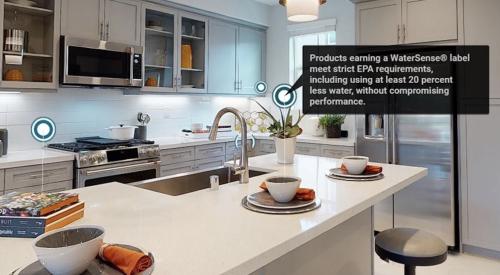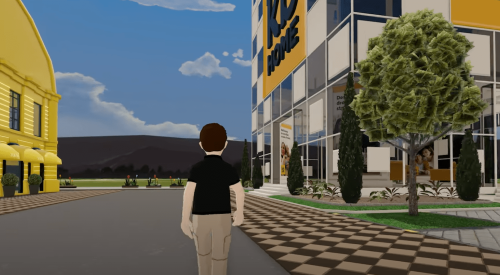From the 1950s, production builders have sold subdivisions by using dreamy model homes staffed with eager sales agents. Does the digital age make that big investment unnecessary?
We asked two of North America's most experienced consultants in the field of new home sales whether today's elaborate online marketing programs make model home presentations obsolete. Of course, the two we picked have wildly divergent opinions on the subject. But both sides of this argument seem to have merit. Let us know which side of this debate you're on at HousingZone.com.
 |
|
Stan Kates' company, Kates Marketing Group, is based in Toronto, Canada, and has offices in Las Vegas. |
We started marketing without model homes in 1972, replacing them with movies and word pictures painted by well-trained sales agents in retail locations — not on the building site. In that project, we sold 2,600 homes from 13 miles away. We haven't looked back.
Marketing without models is:
- Faster
- Cheaper
- More flexible
Today, computer technology offers tools light years beyond what we had in 1972. Virtual reality tours show how houses look, feel and live. We create "virtual models" that can show you the view from anywhere in a room, or from your condo balcony toward the city skyline. Without models, we cut marketing costs by one third. We still use them some, when the builder needs a crutch. But we often sell out before they open. If you make a product mistake, it's a lot easier to correct in cyberspace than in a model.
Buyers are computer-savvy. They play video games. They're used to computer simulations. The younger the buyer, the better it works. But it still works at high price points, with older buyers. We just sold a $4 million condo totally online.
You still need good sales people, but less time. Online, a sales agent can meet 25 prospects a day, not five. We're looking for builders with guts to go totally virtual, without building even a sales office. We're doing it on a project in Belize.
 |
| John Rymer's firm, Rymer Strategies, is headquarteredin Tampa, Fla. |
The Internet has enormous impact on the way we sell houses, but it's a tool in the process — not a one-stop shop for purchasing a new home. Two-thirds of customers will use the Web in their search. But like a first date, their goal is to identify potential matches — not make a life-changing decision on the first encounter.
The Internet has its greatest sales success in three kinds of industries:
- Services such as banking, stock trading or travel
- Manufactured products and shopping for identical items such as TVs
- Merchandisers with generous return policies, such as Amazon
New homes are different because:
- All homes are unique.
- Builders have an uneven reputation for quality.
- Buying a new home is significantly affected by emotion.
- No builder is willing to offer a full money-back guarantee.
Model homes show the builder's quality, which customers can see and touch. And on-site sales professionals nurture the emotional connection. Both are vital. They work together. There are easier ways to reduce costs than depending on Internet sales.












